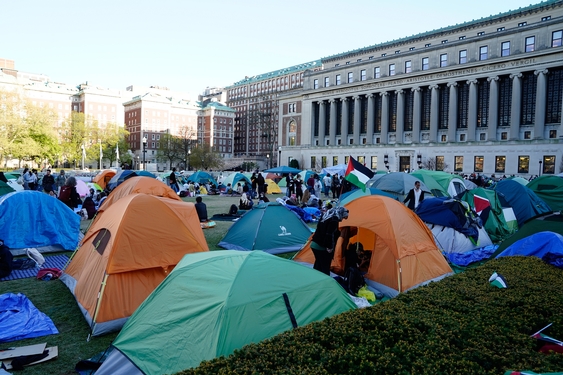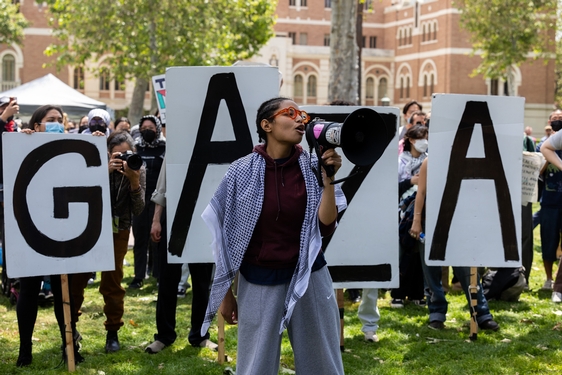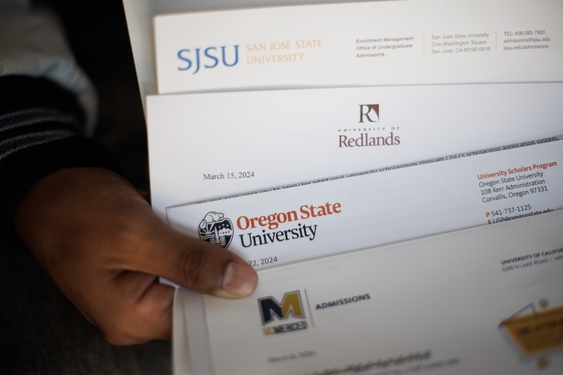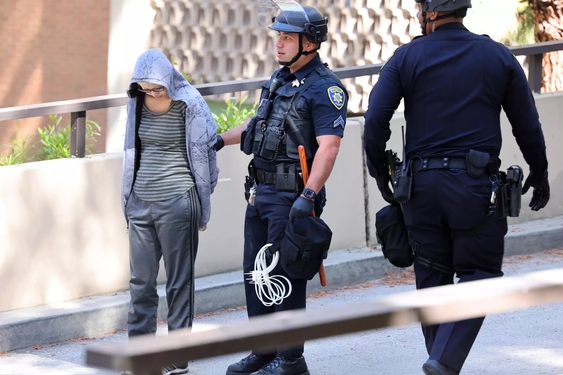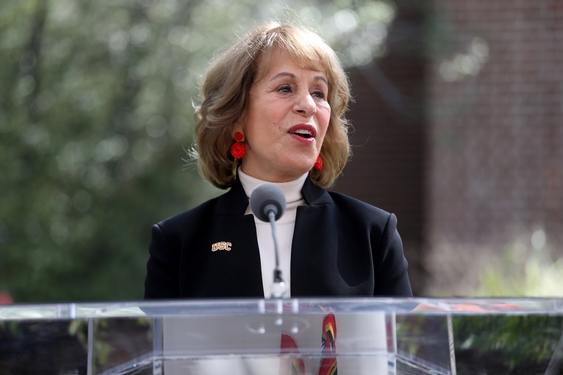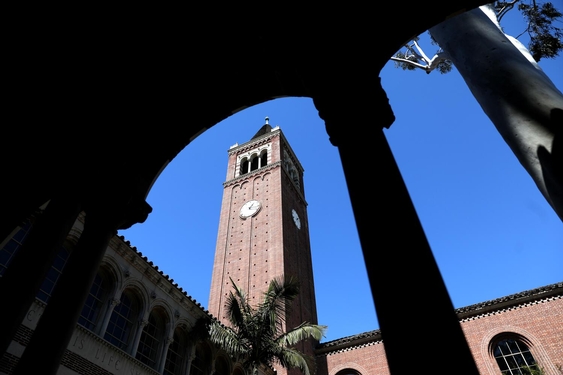Talks have stalled between Columbia University students and officials to clear the pro-Gaza encampment on campus, prompting the administration to launch disciplinary action for any students who did not leave by Monday afternoon.
Columbia President Minouche Shafik announced the breakdown of negotiations Monday morning. Students at the encampment were informed in writing that failure to vacate the quad could result in action that could include suspension or expulsion from Columbia — but as of the university’s 2 p.m. Eastern time deadline there was no sign anyone was leaving.
“Regretfully, we were not able to come to an agreement,” Shafik wrote in an email to students and faculty early Monday, saying the protest has created an “unwelcoming environment” for many Jewish students and faculty. “The University will not divest from Israel.”
Monday is the last day of classes for the semester. Organizers and school officials had been in negotiations to remove the tents from the main campus lawns, which will be needed for graduation ceremonies in a couple of weeks. But the parties at the end of last week reached an impasse over divestment from companies and institutions that profit from Israel.
Instead, Shafik said the university offered to speed up a process for students to suggest “socially responsible” investment proposals and to make Columbia’s direct investment holdings more transparent. Also on the table was a faculty committee to address academic freedom and investments in health and education in Gaza.
The deal was rejected by student protesters, who have shown no sign they will accept any sort of compromise on divestment.
“These repulsive scare tactics mean nothing compared to the deaths of over 34,000 Palestinians,” Columbia University Apartheid Divest, a coalition of more than 100 student groups that runs the encampment, said in a statement. “We will not move until Columbia meets our demands or we are moved by force.”
Columbia told students that anyone who voluntarily left the encampment by 2 p.m., identified themselves to the university, and signed a form promising to follow all school policies through the 2024-25 school year could finish this semester in “good standing.”
Demonstrators who do not agree to those terms could face discipline from probation and access restrictions, to suspension or expulsion, the notice to students said. Students already involved in a disciplinary process are not eligible for the deal.
A Columbia spokesman confirmed the university has begun suspending students, who will be restricted from all academic buildings and university housing.
“We urge those in the encampment to voluntarily disperse,” Shafik said. “We are consulting with a broader group in our community to explore alternative internal options to end this crisis as soon as possible.”
But Students for Justice in Palestine on social media had told protesters: “do not sign anything with administration” and gather at noon to protect the encampment.
The call-to-action turned out about 1,000 student protesters, who picketed around the encampment in keffiyehs and with Palestinian flags. Faculty in bright vests lined the entrance to the demonstration, preventing people from entering.
“This is not a matter of simply violating university rules,” said Mahmoud Khalil, a Palestinian graduate student and negotiator. “This is a movement, an antiwar movement.”
Sueda Polat, also a Columbia graduate student and negotiator, said the offer to donate to Gaza amounted to “nothing more than bribery.”
“This is a smokescreen,” Polat said of the overall deal. “The students refuse to trade in the blood of Palestinians.”
The pro-Gaza encampment first emerged on campus April 17 as Shafik testified before Congress about efforts to curb antisemitism. Thirty hours later, university officials had suspended students involved and called the NYPD, with cops arresting more than 100 students while clearing the lawn.
The protesters quickly returned and set up a second encampment. University administrators vowed over the weekend not to bring the NYPD in again to clear out the encampment, claiming that police intervention would only inflame an already tense situation.
Columbia’s campus is on private property and the NYPD can only go in if asked by the university.
_____
©2024 New York Daily News. Visit nydailynews.com. Distributed by Tribune Content Agency, LLC.


